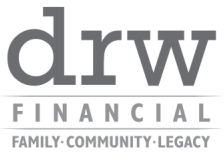|
Would you benefit from converting some of your “traditional” retirement savings (think 401k or IRA) into a ROTH type IRA? An overview of the strategy may be useful in making your own determination. Traditional vs ROTH -- what’s the difference? Contributions to a traditional IRA (or 401k, 403b, 457 plan…) have to potential to lower your taxable income in the year of the contribution, and may defer income taxes on gains while held inside the account. When the funds are withdrawn, they are typically taxed as income at your marginal rate, and if funds are withdrawn before age 59.5, an additional 10% tax penalty may be assessed. In contrast, contributions to a ROTH are made “after tax”, and so receive no income tax benefit in the year of the contribution. Taxes on gains are deferred as with traditional IRA balances. But when funds are withdrawn, after age 59.5, there is no income tax due. Let’s talk about RMDs a bit. The government may be OK deferring income taxes on retirement savings, and offering a tax break in some cases when funds are contributed, but they definitely prefer to get to tax that money eventually. For traditional IRA (and 401k, etc) balances, “required minimum distributions” begin when you turn 70.5. There is a standard calculation that uses the last year ending balance of your funds in all of your traditional retirement accounts and your current age, and kicks out a number that MUST be withdrawn from your accounts and subjected to income taxes. Failure to meet your RMD comes with stiff penalties on top of the regular taxes. Because ROTH balances are “after tax” already, they are not typically subject to RMDs. Why would someone convert to ROTH? The rationale to convert some or all of your traditional retirement savings to the ROTH style will depend on your particular circumstances. Some reasons that may be compelling:
Some Practical Considerations
DRW Financial provides financial planning services and investment management to clients
per agreement. DRW Financial does not provide professional tax or legal advice, and recommends that people engage a tax or legal professional prior to taking action. Comments are closed.
|
AuthorDavid R Wattenbarger, president of DRW Financial Archives
June 2022
Categories |

 RSS Feed
RSS Feed
